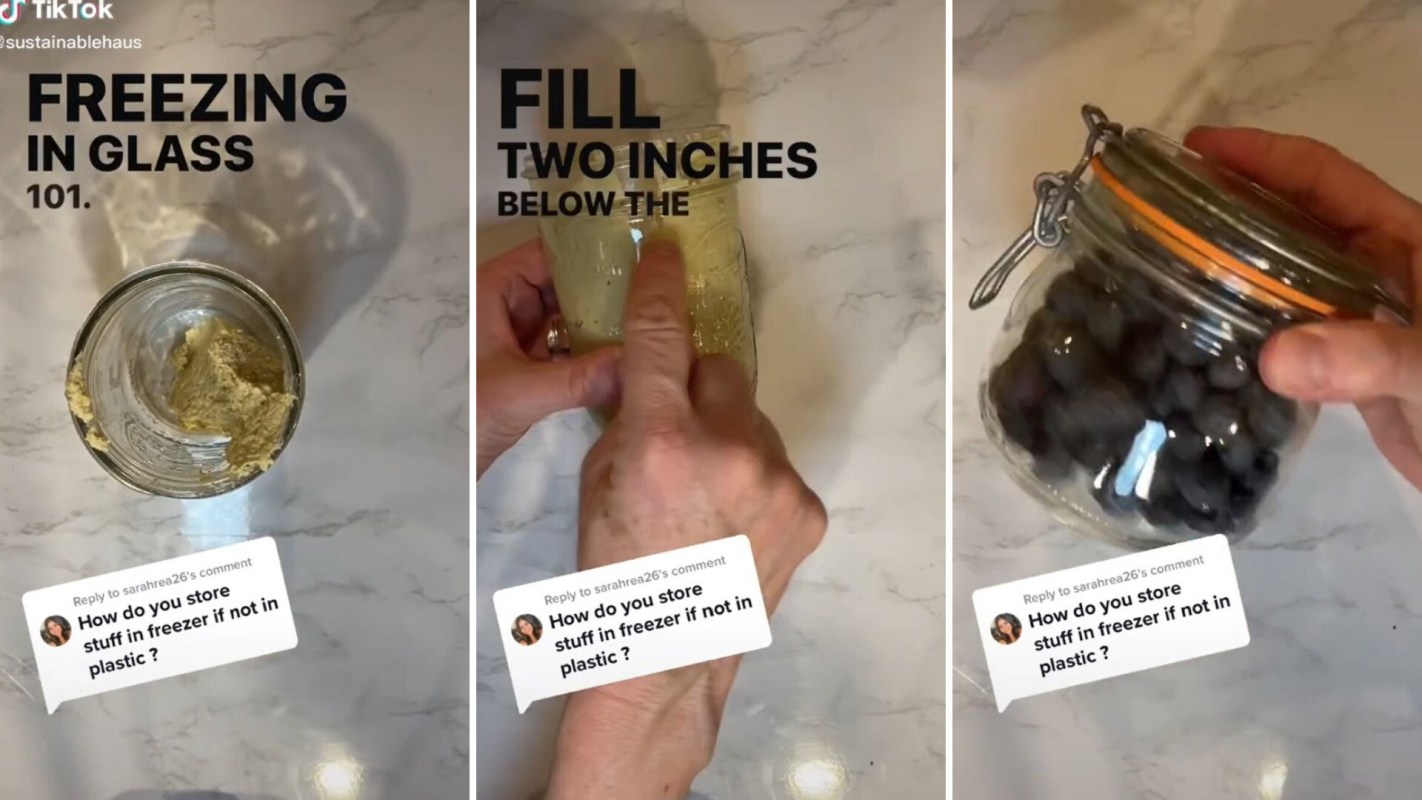A TikToker is showing the world how to properly freeze food in a glass container — a convenient method for those who want to avoid plastic when storing their leftovers.
The scoop
The TikTok video from user @sustainablehaus briefly demonstrates how to store different foods by way of freezing.
First, take out a clean jar. For soups, sauces, and hummus, freeze it in a straight jar that doesn't have any curvature in the neck. Fill it two inches below the top, always keeping everything clean. Be sure to add the lid after freezing the food.
For foods that are individual pieces, such as berries, place the items inside a glass container without a lid, place it in the freezer until frozen, then remove the frozen items and place them into a clean and dry glass jar before adding the lid.
Sustinablehaus concludes by saying, "Be sure to label everything. Follow for more tips and advice."
@sustainablehaus Reply to @sarahrea26 #foodstoragetips #refillshop #sustainablenj #sustainablelifestyle #ditchplastic #plasticfree #ecotok #healthyfoods #zerowaste ♬ original sound - sustainablehaus
How it's helping
Every year, nearly 420 million tons of plastic are produced. This process requires the extraction of oil from our Earth and releases toxic pollutants into the air we breathe.
But there's another issue with plastic production, as much of it ends up in our natural environment and our oceans.
Plastic is not organic and may not break down for decades or more. Marine wildlife, such as fish, dolphins, sea turtles, and birds, often get entangled or choke on plastic bags that end up in the ocean.
But how can sea animals be affected by containers like Tupperware that are too big for them to choke on?
Plastic eventually breaks down into smaller, nearly invisible pieces called microplastics, which fish end up eating. Sharks, dolphins, and seagulls end up ingesting the same microplastics when they eat those fish.
Just last year, microplastics were found in human blood for the first time, with the obvious potential for adverse health effects as scientists worry these elements can damage human cells, although more studies are needed.
What's everyone saying?
There was no shortage of questions and comments.
One user wrote, "Freeze first, then add the lid?" to which the originally poster answered, "Yes, it ensures any expansion won't cause breakage."
As one happy commenter expressed: "So helpful! I'm gonna start using more glass and stop using plastic containers that leech."
Join our free newsletter for easy tips to save more, waste less, and help yourself while helping the planet.









